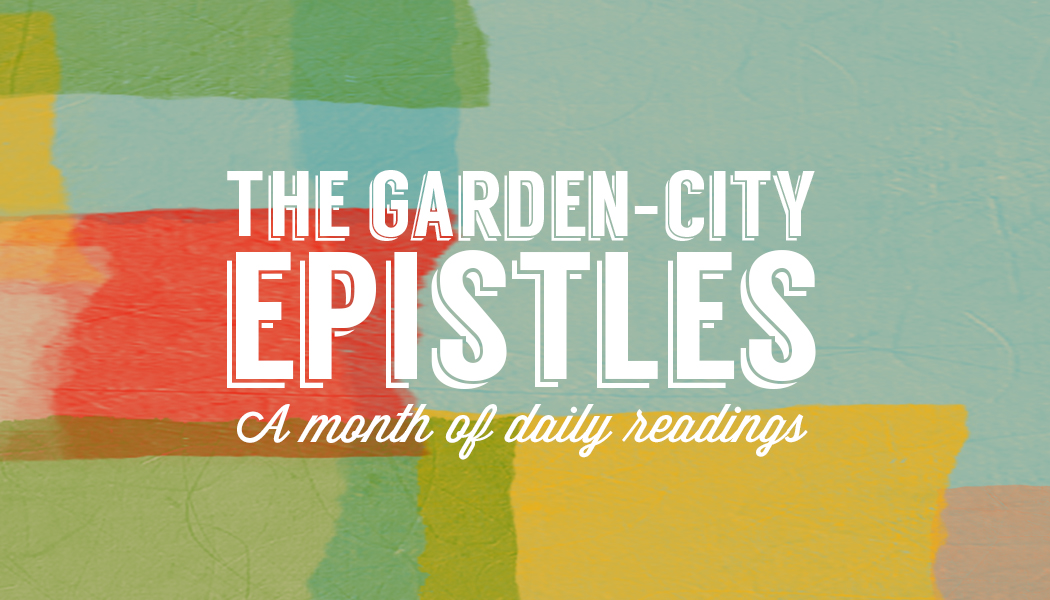This letter was written to Jeff Windham, a friend who works on the Westwinds Grounds Crew.
You may not know how it all started—and by “all”, I really do mean everything. If you believe, as I do, that there is a Creator, a Maker, a Sustainer and Revealer of Worlds who rules the cosmos and is Lord of Creation, then it likely comes as no small surprise that he made the world we call our home and placed us upon it.
But the world he created wasn’t like it is now. Not entirely. The Creator made our world and placed a garden in the center of it, calling the garden Eden. It was paradise—actually, the word “paradise” is Persian for “garden.” God placed our ancestral parents within that place, and Eden was where we walked with God.
The garden was sacred.
In the ancient world, gardens were essential components of religious worship. Gardens were not undeveloped wilderness but expansive urban parks[1]. Most eastern temples had gardens, and the priests considered these gardens to be the place where the gods rested.
Why do gods need rest? According to legend, they’ve spent most of their existence beating each other into submission. That’s why so many creation myths involve one god dominating another. In Egypt, the priests told the people that Amun forced all other gods to submit to him; in Babylon, it was Marduk who conquered Tiamat.
But God—our God, the True God of gods and Lord of All—did not need to nurse his wounds. Does a lion skirmish with a gnat? Does a snake train for war with a snail? No. Our God made the world with a Word. He sang Creation into existence, a melody of blessing amid the harmony of living things, born upon the rhythm of the stars.
The Creator created Eden as a garden of divine rest. Not because he needed rest, but to set an example for humanity. Rest is holy. Rest is godly. Our lives are tiresome, and if we become rest-less we also become anxious, agitated, and afraid. Eden was a place of rest for God and his people, a place where we could be with him and enjoy him forever.
There’s another word for such places of divine-human congregation. We call them temples.
“Eden was the archetypal temple,”[2] a garden paradise where God walked with man in the cool of the day. In fact, Genesis 3 and Leviticus 26 use the same terminology to describe the way God moves in both Eden and the tabernacle. But outside Eden, the world was untamed wilderness. Wild. Ungoverned. And there were dangers beyond the garden boundary. Dangers for which humanity must always be prepared.[3]
But we are not alone. God—our God—created a paradise he intends to share, enjoying rest he doesn’t need after winning a contest he couldn’t lose. He is our Creator, our Benefactor, and our Defender. Never forget who you are and where you come from. It changes things. It did for me. I used to think I was from Canada, but passports from Eden have cooler stamps. They bear the thumbprint of God.
And so do you.
[1] Stephen T. Um and Justin Buzzard, Why Cities Matter: To God, the Culture, and the Church (Wheaton, IL: Crossway, 2013), 58.
[2] G.K. Beale, The Temple and the Church’s Mission: A biblical theology of the dwelling place of God (Downers Grove, IL: InterVarsity Press, 2004), 26.
[3] We will explore this more in a later chapter.
fossores
Related posts
Categories
Category Cloud
Tag Cloud
Recent Posts
- Victors and Victims November 6, 2018
- 3 Hacks for Happiness October 29, 2018
- Hope Against Death September 20, 2018
- The Shape Of The Cross September 19, 2018


